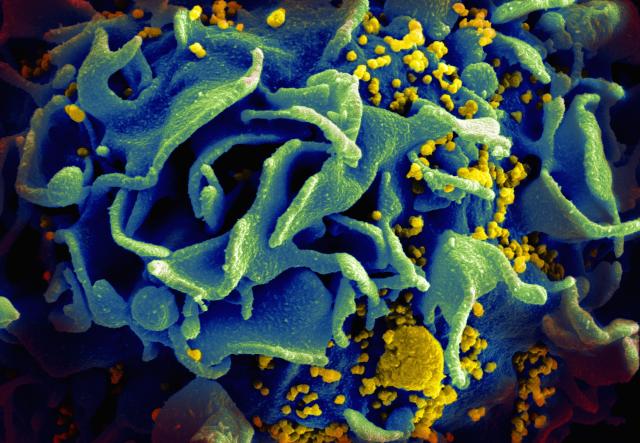For the First Time, Researchers Eliminated HIV From the Genomes of Living Animals
By Alice Park,
Time
| 07. 02. 2019
There’s no question that powerful anti-HIV medications can do a fairly good job of keeping the virus under control. Used properly, these anti-retroviral drugs (ARVs) can suppress HIV enough to keep it at levels so low they’re undetectable in the blood, which drastically lowers the chance of spreading the virus during sexual activity or transfusions. But ARVs can only do so much.
They work best on viruses that are actively making copies of themselves and infecting healthy cells. HIV has evolved to “learn” this, and can mutate to become resistant to the medications so that as soon as the drug onslaught stops, viruses replicate with abandon once again. HIV can also preserve itself by hiding, quiescent and not replicating, in lymph and other tissues throughout the body. When the immune system drops its guard, these latent viruses can start replicating again. All of which means that once a person is infected, these viruses remain in the body like an uncapped grenade, just waiting to overwhelm the immune system with millions of infectious virus, years, or even decades, after HIV infected...
Related Articles
By Scott Solomon, The MIT Press Reader | 02.12.2026
Chris Mason is a man in a hurry.
“Sometimes walking from the subway to the lab takes too long, so I’ll start running,” he told me over breakfast at a bistro near his home in Brooklyn on a crisp...
By Diaa Hadid and Shweta Desai, NPR | 01.29.2026
MUMBRA, India — The afternoon sun shines on the woman in a commuter-town café, highlighting her almond-shaped eyes and pale skin, a look often sought after by couples who need an egg to have a baby.
"I have good eggs,"...
By George Janes, BioNews | 01.12.2026
A heart attack patient has become the first person to be treated in a clinical trial of an experimental gene therapy, which aims to strengthen blood vessels after coronary bypass surgery.
Coronary artery bypass surgery is performed to treat...
By Staff, ScienceDaily | 01.05.2026
Scientists at UNSW Sydney have developed a new form of CRISPR technology that could make gene therapy safer while also resolving a decades-long debate about how genes are switched off. The research shows that small chemical markers attached to DNA
...




